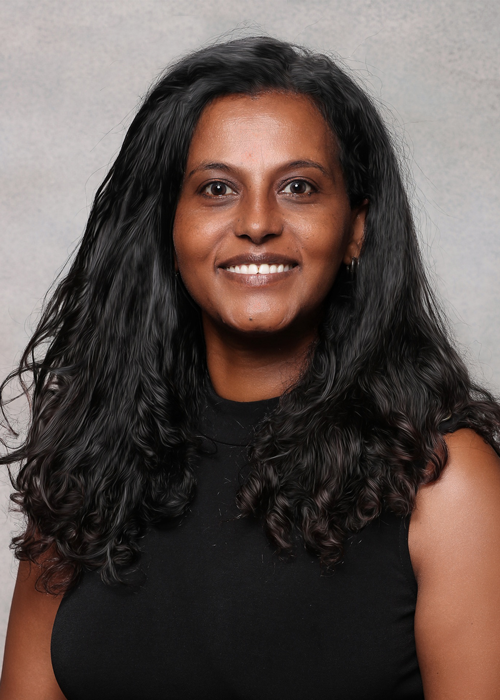Jul 2, 2025
Healing in the heart of displacement
Professor leads transformative Fulbright work in Ethiopia

When Waganesh “Waggy” Zeleke, Ph.D., returned to her native Ethiopia as a U.S. Fulbright Scholar, she brought her personal history, native language and a deep commitment to healing trauma through culturally responsive care.
Now an associate professor in VCU’s Department of Rehabilitation Counseling, Zeleke brought her expertise and empathy to a country grappling with one of the highest numbers of internally displaced people in the world. In 2021 alone, more than 5 million Ethiopians were displaced within their home country due to ethnic conflict. Many had endured brutal violence: rape, the loss of homes and livelihoods, even the murder of family members.
“It’s not just the trauma of displacement,” Zeleke said. “It’s the ongoing trauma of being forgotten.”
Her Fulbright work – published in February in the journal Trauma Care and to be presented at the European Society for Trauma and Stress Studies Conference in June in Tbilisi, Georgia – took root in a camp where more than 2,000 families lived in makeshift tents without identification, employment rights, consistent aid or access to health care. Families shared cramped shelters where children often went unbathed, unfed and unprotected. Without appropriate interventions, those experiences put individuals at high risk of developing trauma-induced mental disorders.
“You don’t see yourself when you are in that crisis,” Zeleke said, who spent the 2022-23 academic year in Ethiopia as the start of her appointment within the College of Health Professions. “You forget yourself. Our first work was just aimed at helping them stabilize through psychological first aid.”
Rather than enter the community as an outsider collecting data, Zeleke led what is termed a community-based participatory action research initiative, a model that centers lived experience. Within those camps, individuals from all walks of life are at the same lowest point – accomplished professionals are stripped of their accomplishments and left with a struggle to recover if they can. Across Ethiopia, nearly 110 languages are spoken, creating further cultural divisions in the camps.
“The community becomes part of the research team,” said Zeleke, who can speak and understand one of the main local languages, “because they are experts of their own experience.”
She visited the camp three to four days every week. Among her work was organizing a community event where youth supported one another by braiding younger children’s hair and promoting hygiene - an initiative implemented by two local psychologists on the research team. On every visit, she was observing residents’ new everyday life for clues on what they needed not just to cope but to recover. “You can’t just go in and say, ‘What happened to you?’ They may not have words for it, but in action, they will show you,” she said.
The ultimate goal: Help women reclaim their stories.
Working with a multidisciplinary team from the University of Gondar and local volunteers for four months, Zeleke adapted narrative exposure therapy – an evidence-based treatment for trauma survivors – into a six-week, culturally grounded group therapy program. In the therapy’s original manuals, tools such as stones and ropes were suggested to help build the life narrative.
But for many camp members, “stones and rope were used to harm them,” Zeleke explained. “We had to use symbols that helped them feel safe again.”
The team adapted the therapy tools to include cotton, water and local proverbs, which held more culturally resonant and soothing meanings. This adaptation was used during a six-week group intervention conducted for 12 women with post-traumatic stress disorder.
Those efforts demonstrated that trauma victims are more receptive to interventions based on cultural and contextual factors, leading to greater acceptance of therapy and fostering resiliency. “They entered group therapy seeing themselves as victims,” she said. “By the end, many saw themselves as survivors – and some as thrivers.”
The group formed its own peer-led support network, creating psychoeducational programs that extend to others in the camp who hadn’t been part of the original therapy sessions. She also saw youths form their own support groups and seek out opportunities to produce music on donated laptops or raise chickens to earn a small income for their families. Many of those youths have even managed to enroll in the nearby university.
“This kind of healing can’t happen in isolation,” Zeleke said. “We fostered collective healing. That’s what sustains them.”
Although her Fulbright tenure ended after 10 months, the work continues, in part through a local faculty team she built there to continue to teach and provide resources. As a complement to her community-based action research, she taught and contributed to the development of a new doctoral program in clinical psychology at Addis Ababa University. She also led professional development sessions and public lectures on trauma-informed care, collective healing and cultural responsive therapy across six universities and two agencies in Ethiopia and Mauritius, ultimately reaching more than 400 mental health professionals, educators and community leaders.
For Zeleke, who left Ethiopia years ago but never lost her connection, the experience was both professional and deeply personal. “Even though I speak the language, I had to relearn the culture. I thought I knew it, but, being there, I realized I didn’t know enough,” she said.
But her presence and ties to the country were critical in building critical relationships with those in the camps. “Without trust, there is no healing,” she said. “But once trust is built, we can rewrite our stories together.”